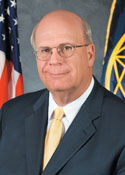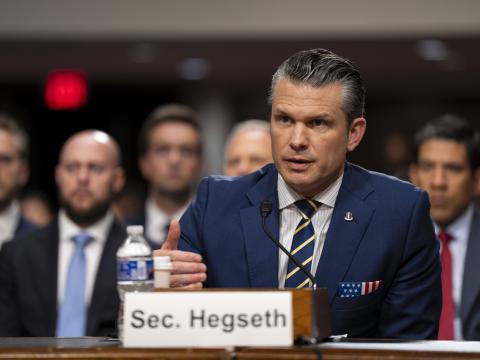The New Year Abounds With Challenges and Opportunities
 |
For most of the economies in the world, 2012 should continue to be a recovery year. This will prolong the pressure placed on budgets in defense, intelligence and homeland security. In the command, control, communications, computers, intelligence, surveillance and reconnaissance (C4ISR) and information technology business—our focus—budget cuts often are not as great as in other sectors. However, the price is that expectations are high for information-driven savings that can be applied to reductions in the out years.
To achieve the expected increases in productivity and agility that will generate savings, investments will be made in the near term in information infrastructure and security. Other areas will see programs and projects pushed back. New technologies supporting enterprise networking, enterprise services and mobility offer much promise, but gaps remain, particularly in security. Many in our community have begun to refer to C5ISR; where the fifth “C” is not “cyber,” as some believe, but “coalition.” The fact that scarcely any nation in this world goes into a conflict by itself significantly complicates progress in movement toward enterprise capabilities, mobility and increased security. No one nation can move out on its own and ignore its coalition partners.
So I think we all can agree there are challenges. People may not envy those who are filling large department or agency chief information officer (CIO) positions. But, in fact, some huge opportunities exist. At the AFCEA TechNet Asia-Pacific Conference in November, Lt. Gen. William T. Lord, USAF, the U.S. Air Force CIO, summed up the current situation as well as I have heard it. He said that the demand “to do it better with less” is forcing all of us to do what we knew all along we should have done but were too busy to tackle: figure out how to work together to eliminate duplication and operate as an enterprise. In doing that, he said, we will accomplish our objectives and save money.
At the end of November, I had the opportunity to attend a symposium at the AFCEA UK Southern Chapter at a Royal Navy training facility, Collingwood, near Portsmouth. This symposium addressed exactly the same problem set, but from a U.K. perspective. The need for greater interagency information sharing and cost reduction to meet challenged budgets is driving the United Kingdom to a common information environment and to enterprise solutions within and across departments. It occurred to me as I listened to some excellent presentations that much could be gained if collaboration on these efforts were to take place across the Atlantic.
As I travel to visit AFCEA chapters around the world, over and over I see these opportunities for sharing. We were in combat in Afghanistan for eight years before the Afghan Mission Network (AMN) was operationalized in support of the International Security Assistance Force (ISAF). In the foreseeable future, we will not have eight years to spend developing a coalition network. We need to be able to hit the ground running with the ability to put the pieces together quickly.
AFCEA was created in 1946 to promote an ethical dialogue among government, industry and academia around these kinds of issues. I would argue that, as we drive through our 66th year, AFCEA is in a unique position to help bring government, industry and academia together to help address these challenges. Industry must be part of the solution—both large and small businesses alike. AFCEA’s more than 2,000 corporate members, and other companies that often join the dialogue, all have contributions to make. Governments are not in a position to reach out directly to all of these companies. Because AFCEA is not a lobbying organization, it can bring the industry view to government customers in an unbiased way, fully consistent with all government ethics and acquisition laws and regulations.
This past year, AFCEA introduced new directories for cyber, intelligence and health information technology. These directories are available to all of industry to identify their products and services in as much granularity as they want. I encourage government and industry to use these directories and to identify other areas where they would like to have industry visibility. These directories give government access to information on large and small businesses to identify potential sources for needed products and services. Industry in turn can use the directories to identify potential partners to provide complete solutions and fully meet government needs. The directories are accessible through our website.
I look forward to this new year, and I hope you do too. If there is something AFCEA could be doing that it is not, please communicate with me. You can reach me at ceo@afcea.org .
As always, thanks for all you do. Happy New Year!




Comments